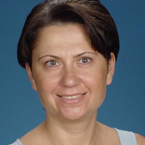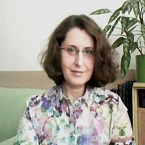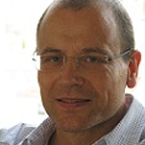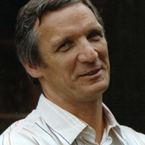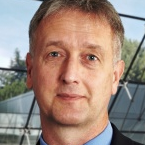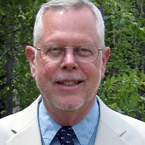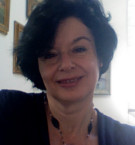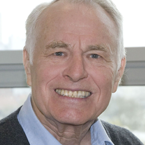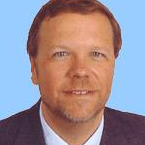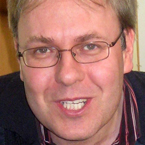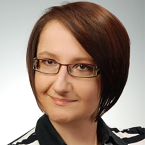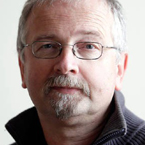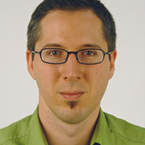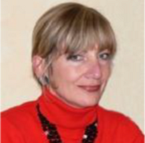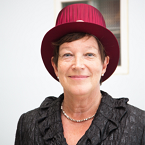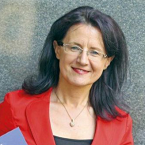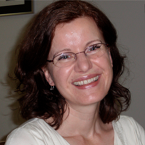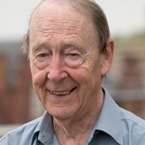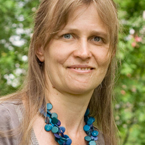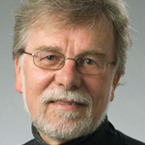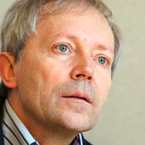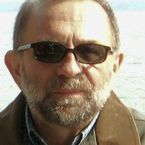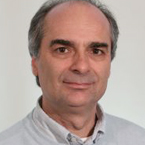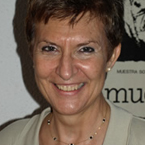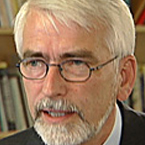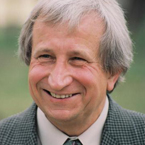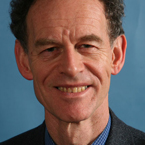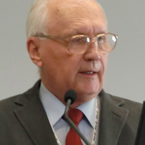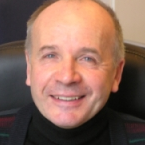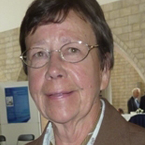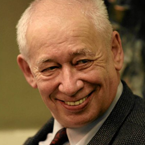Parallel Session Speakers#
Tuzin Baycan
Professor of Urban and Regional Planning at Istanbul Technical University. Fellow of the Academia Europaea. Panel Member of ERC Advanced Grants for Social Science and Humanities: Environment and Society and JPI Urban Europe. Editor of A/Z ITU Journal of Faculty of Architecture. Editorial/Advisory Board Member of International Journal of Sustainable Society, Studies in Regional Science, Romanian Journal of Regional Science, Region, Journal of Independent Studies and Research-Management: Social Sciences and Economics. Editor of Knowledge Commercialization and Valorization in Regional Economic Development (2013). Co-editor of Sustainable City and Creativity: Promoting Creative Urban Initiatives (2011) and Classics in Planning: Urban Planning (2008). Author of many scientific papers and book chapters. Her main research interests cover urban and regional development and planning; urban systems; environment; sustainable development; creativity, innovation and entrepreneurship; diversity and multiculturalism.
Katarina Bilikova
Head of the Dpt. of Molecular Apidology, Institute of Molecular Biology, Slovak Academy of Sciences. Her research is focused on the study of honeybee royal jelly (RJ) proteins and peptides. The main objective is to test their physiological activity from the point of view of the application in bee-keeping as well as for their potential impact on functional proteomics in medicine, namely therapeutic application of RJ proteins and peptides as antibiotics and immunostimulators. Her main discovery is the isolation and characterization of apsimin, a honeybee specific peptide and the demonstration of the antibiotic activity of royalisin as a antifoulbrood and antiungal factor of honeybee larval food. She showed a multifunctionality of apalbumins as a result of various posttranslational modifications of maternal RJ proteins. A simple ELISA method for quantitative determination of apaplbumin1, the major protein of honeybee RJ was developed, as a tool for characterizing honey authenticity and quality. She was a member of the Scientific Consortium of an International Project of Sequencing of Honeybee Genome.
Vladimir Biti
University Professor of Slavic Philology at Institute of Slavic Studies at the University of Vienna. He has been the Chair Professor of Croatian Language and Literature Department at the University of Zagreb. His fields of scholarships are: theory of literature, culture and aesthetics, philosophy of history and Croatian literature. Awarded with The Great Award of the Croatian Academy of Sciences, Award of Matrix Croatia and Award of the Faculty of Philosophy in Zagreb. He has been coordinated a project of the Austrian Association for Semiotics “ Cultural Semiotics / Semiotics of Culture in Eastern and Central Europe” for Croatia, Slovenia and Bosnia and Herzegovina.
Philippe Bulet
Operational Manager of the GIP Plateforme BioPARK and Scientific Director at UMR UJF CNRS 5525 in Archamps. Within his former own research public group and as CSO of a Private Biotech specialized in peptide/protein chemistry and drug discovery and development, he gained experience in peptide/protein chemistry, the development of research tools with a strong expertise in mass spectrometry, the production of peptides/proteins, peptide/protein isolation and characterization, analytical studies and peptide modeling, and in networking.
Cezary Cieśliński
Member of the Logic Department of the Institute of Philosophy at the University of Warsaw. His research interest are mathematical and philosophical logic, model theory and truth theory (deflationism, theories of self-referential truth). He is the author of many scientific articles, such as „Why is truth undefinable”, „ Deflationism, conservativeness and maximality”, „Deflacjonizm i konserwatywność”, „Heterologicality and incompleteness”.
Frederic Ducancel
Researcher at the CEA, France Laboratory. He has been the Director in the Venomtech Ltd. Later on he became the Head of the Laboratory Antibody Engineering for Health to finally upgrade as the Director of this Laboratory. The majority of his publications are focused on molecular engineering, His articles published in English include: Functional characterisation of two anti-estradiol antibodies as deduced from modelling and site-directed mutagenesis experiments, Highly specific anti-estradiol antibodies : structural characterisation and binding diversity, The sarafotoxins, Crystal structure of a hydrophobic immunodominant antigenic site on hepatitis C virus core protein complexed to monoclonal antibody and Cloning, expression and characterization of a chimerical disintegrin/alkaline phosphatase hybrid protein. Protein Expression and Purification.
Dieter Fellner
Dieter Fellner is a member of the editorial boards of leading journals and a member of the program committees of many international conferences and workshops. He is a member of EUROGRAPHICS, ACM, IEEE Computer Society and the Gesellschaft für Informatik (GI) where he serves as a member of the Board of Directors (erweiterter Vorstand) as well as the chairman of the Graphics Chapter (Fachbereich Graphische Datenverarbeitung). Furthermore, D. Fellner is an advisor for the German Research Foundation (as a member of DFG’s AWBI) and the European Commission (as a member of ISTAG).
Yale H. Ferguson
Professorial Fellow in the Rutgers University graduate Division of Global Affairs at Rutgers University-Newark and Emeritus Professor of Global and International Affairs. Previously he was Professor II of Political Science and from 2002-08 was Co-Director of the Division of Global Affairs. He also is Honorary Professor at the University of Salzburg (Austria).
Cinzia Ferrini
Researcher in History of Philosophy and aggregate professor in History of Modern and Contemporary Philosophy in the Department of Humanistic Studies, University of Trieste. She currently serves as independent member of the Council and as member of the Board of the Academia Europaea (2013). She has held research fellowships in the USA, the Netherlands, Switzerland and Germany, and is the author of books and several articles dealing mainly with German classical philosophy and in particular with the relation between logic and the philosophy of nature in the development of Hegel’s thought.
Dagfinn Føllesdal
he Clarence Irving Lewis Professor of Philosophy at Stanford University and professor emeritus at the University of Oslo. After earning his bachelor and master’s degrees at the University of Oslo, he attended Harvard University and earned his Ph.D. in 1961 .He taught at Harvard University from 1961 to 1964, and began teaching at Stanford University in 1968. He is a member of the Norwegian Academy for Language and Literature, the Norwegian Academy of Science and Letters and the Royal Swedish Academy of Sciences.
Georg Gottlob
Georg Gottlob is a Professor of Computing Science at Oxford University UK and an Adjunct Professor of Computer Science at the Vienna University of Technology, Austria (TU Wien), where he is a member of the Information Systems Institute. His research interests are database theory (in particular, query languages), Web information processing, constraint satisfaction problems, nonmonotonic reasoning, finite model theory, and computational complexity. He is a co-founder of Lixto Corporation. Professor Gottlob received his Engineer and Ph.D. degrees in Computer Science from TU Vienna, Austria in 1979 and 1981, respectively.
Dieter Grimm
Professor of Public Law, Judges of the Federal Constitutional Court.Rector of the Institute for Advanced Study Berlin and visiting Professor at New York University Law School and Yale Law School, New Haven, CT, National University in Seoul, National University of Juridicial Sciences Kalkutta, at Harvard Law School and other. In years 2001 – 2007 he has been the Rector at the Intitute of the Advanced Study in Berlin. To his research fields belong: Constitutional law and constitutional law, constitutional theory; Constitutional history, constitutional jurisdiction and constitutionalization beyond the nation state.
Dirk Heirbaut
Master of Arts (History), Master of Laws and Ph. D. (Law) (Ph. D. Thesis about feudal law in the county of Flanders, 1000-1305) all at the Ghent University. He leads the positions of Director at the Department of Legal Theory and Legal History Ghent University, Corresponding member of the Zentraldirektorium der Monumenta Germaniae Historica, Partner in the Interuniversitary Attraction Pole Justice and Society, President of the Scientific Committee for Legal History of the Royal Flemish Academy of Belgium for Arts and Science; Secretary of the Belgian-Dutch Association for the Study of the History of the Reception of Roman Law in the Netherlands, Founding vice-president of the European Society for Comparative Legal History. Moreover, he’s a member of the Assessement Committee of the Doctoral School Legal History (Max Planck Institute of Legal History, 2006). He organizes a number of various Conferences and is active as an editor of many publications.
Leon Horsten
Professor of Philosophy at the University of Bristol. He has been a professor at the University of Leuven, 1999-2007.His research is concentrated chiefly on bringing formal methods to bear on philosophical problems. He has applied formal methods to problems in the philosophy of science, the philosophy of mathematics, the philosophy of language, epistemology and metaphysics.
Ewa A. Jankowska
Studied medicine in Wroclaw, underwent clinical and research training in cardiovascular science in Wroclaw (Centre for Heart Diseases, Military Hospital) and in London (Royal Brompton Hospital, National Heart & Lung Institute, Imperial College London), and obtained her PhD in cardiology and endocrinology. She is currently holding a professor position and is the Head of Laboratory of Applied Research on Cardiovascular System, Department of Heart Diseases, Wroclaw Medical University, and is also employed as a professor in Institute of Anthropology, Polish Academy of Sciences. Her interdisciplinary research focusses on the pathophysiology of heart failure with the special interest in the role of peripheral mechanisms in the progression of heart failure, cardiorespiratory reflex control, neurohormonal activation, derangement in hormone metabolism (mainly sex steroid hormones), cardio-renal anaemia syndrome, iron metabolism, the role of skeletal muscle and fat tissue, an experimental model of tachycardia-induced cardiomyopathy in pigs, and as well as the process of male ageing. She was a member and a president of the Committee of Young Scientists, an advisory board of the Polish Ministry of Science and Higher Education. Currently, she is a president-elect of “Club 30” of Polish Cardiac Society, associating young cardiologists in Poland, as well as she is a member of the European Society of Cardiology “Cardiologists of Tomorrow” nucleus.
Marko Juvan
Senior Researcher, Head of the Institute of Slovenian Literature and Literary Studies, Research Centre of the Slovenian Academy of Sciences and Arts, and Professor of Slovenian Literature. He holds a PhD in Literary Studies (1993) from the University of Ljubljana. In 1986 he got a post of teaching assistant at the Department of Slavic Studies, U of Ljubljana. Since 1994 he has been teaching literary theory and Slovenian literature at the same university (since 2007 as full professor). He changed his main affiliation in 1996, when he was employed as researcher at the Institute of Slovenian Literature and Literary Studies (Research Centre of the Slovenian Academy of Sciences and Arts). He was elected head of the Institute in 2011. Juvan presented papers at more than fifty scholarly conferences throughout Europe, in the US, Canada, South Korea, and Australia. He was visiting professor at the universities of Brno and Zagreb and lectured at the universities of Budapest, Munich, Hamburg, Prague, and Reykjavík. As member of the Slovenian Comparative Literature Association, ICLA/AILC, and REELC/ENCLS, he organized or co-organized several international conferences.
Alban Kellerbauer
Research group leader at the Max Planck Institute for Nuclear Physics (MPIK) in Heidelberg. Alban Kellerbauer studied Physics at the University of Stuttgart and McGill University and obtained his Ph.D. from the University of Heidelberg. He is a specialist in cooling, manipulating and investigating trapped particles, ranging from short-lived radionuclides to antimatter. In the course of a CERN Fellowship, he was part of the ATHENA antimatter experiment, which was the first to synthesize cold antihydrogen. Since 2006 Alban Kellerbauer has been leading an independent research group at MPIK with funding from an Emmy Noether grant of the German Research Foundation (DFG) and a Starting (Consolidator) Grant of the European Research Council. His current research interests are the laser cooling of negative ions and the antimatter gravity experiment AEGIS at CERN. Alban Kellerbauer is a co-founder of the Young Academy of Europe.
Tatiana Kovacikova
Received her diploma in telecommunications engineering from the University of Transport and Telecommunications in Zilina (Czechoslovakia) in 1984. In 1996, she finished her PhD. studies on performance issues of broadband telecommunication networks. In 2005, she was nominated the Associated Professor, in 2013 the Full Professor for the Applied Informatics at the Faculty of Management Sciences and Informatics at the University of Zilina in Slovakia. For more than 10 years she has been involved in standardization activities in the European Telecommunications Standardization Institute (ETSI) in Sophia Antipolis with the ETSI Technical Committees TISPAN, Intelligent Transport Systems, CLOUD and CABLE. She has got the SIEMENS Award 2003 for leading the research group in the field of IP telephony. Her professional research interests include network architectures, Next Generation Networks, Multimedia services and Future Internet. Since June 2013, she has been working as the Head of Science Operations at the COST Office in Brussels.
Pia Letto-Vanamo
Professor, LL.D. Pia Letto-Vanamo is a legal historian specialised in European legal history, history of European integration and conceptual history. Currently she is working as director of the Institute of International Economic Law at the University of Helsinki. The Institute is a research unit of the Faculty of Law. Letto-vanamo is also vice dean of the Faculty of Law responsible for research and researcher training. She is co-director of Research team „Europe as Market” of the Centre of Excellence in Foundations of European Law and Polity research funded by the Academy of Finland. Letto-Vanamo has worked as Guest Professor in Legal History at the University of Lund (Sweden). She is Doctor Honoris Causa of the University of Lund and the University of Turku. She has published books and articles in German, English, Swedish and Finnish.
Verica Trstenjak
Professor of European law at the University of Vienna andan external scientific member of the Max Planck Institute Luxembourg for International, European and Regulatory Procedural Law. Since 2013 Professor Trstenjak is also interim judge (juge par intérim) of the civil service tribunal of the EU and member of the Council of the European Law Institute (ELI). From 2004 to 2006 she was a judge at the General Court of the European Union and from 2006 to 2012 an Advocate General of the European Court of Justice. Her main research areas comprise European Law (constitutional and procedural) and European private law, especially European consumer law and European intellectual property rights (copyrights) and fundamental rights.
Nedjeljka Zagar
Nedjeljka Zagar is an associate professor of meteorology at the University of Ljubljana. She received her BSc and MSc from the University of Zagreb, Croatia, her PhD from the Stockholm University in Sweden and was a post-doctoral fellow of the Advanced Study Program at National Center for Atmospheric Research in Boulder, USA. Her research interests range from numerical modelling of the mid-latitude weather to large-scale variability and data assimilation.
Tom W. B. Kibble
British scientist, Senior Research Fellow and Emeritus Professor of Theoretical Physics. He graduated from the University of Edinburgh. His research interests are in quantum field theory, especially the interface between high-energy particle physics and cosmology. He is probably best known for his 1976 theory correlating cooling rate and topological defects. From 2001 to 2006 he was one of the two co-chairs of an interdisciplinary research Programme funded by the European Science Foundation „Cosmology in the Laboratory” (COSLAB). He was previously the coordinator of an ESF Network on Topological Defects in Particle Physics, Condensed Matter & Cosmology.
Katarzyna Kijania-Placek
Assistant professor atthe Institute of Philosophy (Jagiellonian University). Her main research areas are: philosophy of language, philosophical logic, formal semantics and pragmatics. She received many honours and awards, such as Jagiellonian University Rector’s Prize, Jagiellonian University Rector’s Special Stipend for Outstanding Scholar and Klemens Szaniawski’s Distinction for Outstanding Doctoral Dissertation. She also was a visiting scholar at the University of Pittsburgh, USA, University College London and Syracuse University, USA.
Svend Erik Larsen
Professor at Aarhus Universitet, Denmark. Professor Larsen has been awarded a Leverhulme Visiting Professorship to spend January-June 2013 based at UCL Scandinavian Studies. His main research areas are Language and communication, Art, Culture and Media and Man and Cultures. He is the author of many publications, such as, Narrative Theory (1975) and Sémiologie littéraire (1984).
Yvon Le Maho
Research director at the CNRS at the University of Strasbourg. He is a member of the Academy of Sciences. He is involved in the preservation of biodiversity. He has received many honours and awards, such as Grand Prix des Sciences de la Mer Albert 1er de Monaco, Ordre National du Mérite and the Ordre National de la Légion d’Honneur. He also is a member of the French Committee at the UNESCO, member of the French Upper Council on biotechnology and Member of the Program Committee of the French Space Agency (CNES).
Grzegorz Malinowski
Professor at the University of Łódź since 1993. He used to be the Director of the Institute of Philosophy at Łódź University from 2005 to 2012 and Prorector for international relations. His main interests are philosophical and mathematical logic as well as logical aspects of Artificial Intelligence and Computer Science. He is an author of many books, such as Topics in the Theory of Strengthening’s of Sentential Calculi, Elements of Logic, Foundation le Hodey, Many-valued Logics, Logiki wielowartościowe, Logika ogólna, Wydawnictwo Naukowe. He also is author of 90 publications in logical journals e.g. Bulletin of the Section of Logic, Erkentnis, Logique et Analyse, Reports on Mathematical Logic, Studia Logica.
Hermann Maurer
Professor Emeritus at Graz University of Technology. He started his career at the Universityof Calgary as Assistant and Associate Professor, was appointed full professor at Karlsruhe just before he turned 30, and has been now Professor and Dean in Computer Science at Graz University of Technology since 1978, with some interruptions, like guest-professorships of more than a year at Denver University, University of Auckland, and shorter visits to Edith Cowan University in Perth, SMU in Dallas, Waterloo, Brasilia and others. Chair of the Informatics Section of Academia Europaea, „The Academy of Europe” since April 2009, and receiver of many national and international distinctions, Professor Maurer is author of over 650 papers and 20 books, founder of a number of companies, supervised some 60 Ph.D. and over 400 M.Sc. students and was a leader of numerous multimillion Euro projects.
Aleandro Nisati
Physicist researcher of the Italian Institute of Nuclear Physics and scientific associate at CERN on LHC (Large Hadron Collider), Geneva: origin of the electroweak symmetry breaking, as well as the search of new physics beyond the Standard Model. His research regards with new and strange particles producing a large publishing–and–spreading–job within the ECFA (The European Committee for Future Accelerators) particularly on Higgs searches, as well as studies of muon production, in proton–proton collisions at the LHC. He is one of the main founding physicists of one of the two main experiments at LHC, A Toroidal LHC ApparatuS (ATLAS) where he has been recently Physics Experimental Coordinator: scientific program and the project on muon detection and spectrometer, trigger system. Nisati also designed the first–level muon trigger algorithm, as well as the one of the second–level and for that he was elected chair of the Trigger/DAQ Institutes Board until 2007, and Higgs group co–convener for next two years. In 2009 he has been elected ATLAS Physics Coordinator by the collaboration, for two years. The ATLAS and CMS experiments discovered in the summer of 2012 a new neutral boson with a mass of about 125 GeV, consistent with current (large) uncertainties with the Higgs boson predicted by the Standard Model. In 2012 he has been appointed coordinator in ATLAS of studies for the „European Strategy”. In 2013 he bas been appointed coordinator in ATLAS of studies for the HL-LHC ECFA Workshop of October 2013.
Susana Onega
Ph.D. in English Philology, Professor of English Literature at the Department of English and German Studies of Zaragoza University (suma cum laude and extraordinary prize). She is the former President of the Spanish Association for Anglo-American Studies (AEDEAN) and the former Spanish Board member of the European Society for the Study of English (ESSE). She’s also a member of Association of Women Researchers and Technologists (AMIT) and since 1995 –member of International Association of University Professors of English (IAUPE). She was granted the title of Honorary Research Fellow at Birkberck College (Univ. of London) in 1996. Susana Onega has published numerous articles and book chapters on literature and narrative theory, with special focus on experimentalism, narrativity and the relation of literature and history. She is the author of Form and Meaning in the Novels of John Fowles (1989) (winner of the Enrique García Díez Research Award); of Metafiction and Myth in the Novels of Peter Ackroyd (1999. Electronic edition 2000); and of Jeanette Winterson (2006) (shortlisted for the European Society for the Study of English Book Award, 2008). She has edited and translated into Spanish lots of articles.
Sture Öberg
Professor emeritus in Human Geography, and VR panel evaluator for many years. He’s a Doctor by the University of Lund in Sweden and Senior Researcher at the International Institute for Applied Systems Analysis, IIASA, in Austria. Focused on population, aging and globalization, he was awarded as an Evaluator for the Social Sciences and Humanities panel in ERC.
Leszek Pacholski
Studied mathematics at Wrocław University. In 1970 he received Ph.D. in mathematics based on work in model theory. In 1973 he became the chair of the Division of Foundations of Mathematics in the Mathematical Institute of the Polish Academy of Science. In 1994 he moved back to Wrocław University, where from 1996 he is the chair of the Institute of Computer Science. In 1994 he received the Jurzykowski prize. His more recent work is related to logic in computer science.
Francois Joseph Ruggiu
Professor at the University of Paris-Sorbonne. He is interested in History and Civilization: History of modern worlds, the contemporary world, art and music in the early modern period. He particulary works on family history in Europe and in the colonial context. He co-managed, from 2003 to 2011, a research group of the VNRS devoted to egodocuments in early modern and modern France and Europe. Nowadays, he develops a new field on history of the first French colonial empire.
Peter Simons
Studied mathematics and philosophy at Manchester and before moving to Ireland he taught in the Bolton, Salzburg and Leeds. In addition to his Membership of Academia Europaea he is a Fellow of the British Academy and Member of the Royal Irish Academy. Author of two books (Parts, 1987, and Philosophy and Logic in Central Europe from Bolzano to Tarski, 1992) and over 200 papers, he specializes in metaphysics (pure and applied), philosophy of logic, and the history of philosophy and logic in the 19th and 20th centuries, especially Bolzano, the Brentano school, Polish logic, and early analytic philosophy.
Jozef Simuth
Professor at the Institute of Molecular Bilogy, Slovak Academy of Sciences. Head of the Laboratory of Physiomics of Bee Proteins. He’s closely cooperating with Dr K. Bilikova on the honeybee researches.
Jerzy Tiuryn
Full professor, Faculty of Mathematics, Informatics and Mechanics, University of Warsaw (since 1992). Vice Dean for Scientific Matters and International Relations of the Faculty of Mathematics, Informatics and Mechanics, University of Warsaw (2005-2012). He received PhD in mathematics, in 1975 (University of Warsaw). He is currently a member of the Editorial Boards of: Theoretical Computer Science, Information and Computation, and Fundamenta Informaticae. He is an elected Board Member of European Research Consortium for Informatics and Mathematics (ERCIM) (2011). He is a founding member and the President of PLERCIM (Polish Research Consortium for Informatics and Mathematics) (2007-2012). PLERCIM was a member of ERCIM until 2012. He is a founding member and the first President of Polish Bioinformatics Society (2008-2010). He is a member of Academia Europaea (since 1996). Main Research interests: In the past: program verification and semantics, typed lambda calculus and type theory. Currently: bioinformatics and computational biology in the areas of sequence analysis, gene family evolution, analysis of protein-protein interaction networks, analysis of gene regulatory regions, analysis of gene mutations in connection with bacterial drug resistance mechanisms.
Rafal Urbaniak
Rafal Urbaniak completed his Master’s degree at the University of Gdansk, working on various aspects of definability in higher-order calculi (committee: Prof. J. Mrozek, Prof. A. W. Mostowski). In 2008 he completed his PhD in Logic and Philosophy of Mathematics at the University of Calgary (working with Prof. R. Zach), focusing on the development of Lesniewski’s foundations of mathematics. Currently, he is a postdoctoral fellow of the Research Foundation Flanders at the Centre for Logic and Philosophy of Science at Ghent University in Belgium and an Assistant Professor at the Department of Philosophy, Sociology and Journalism at the University of Gdansk in Poland. Rafal Urbaniak is mostly interested in applications of formal methods to philosophical problems, such as those related to theories of rationality, belief revision, philosophy of mathematics, time travel, philosophy of mind, theories of conditionals or philosophy of thought experiments.
Peer Vries
PhD of history. He studied history at the University of Leiden, where he’s specialised in economic and social history with philosophy of science and sociology. He has been teaching at the Posthumus Institute and the ESTER. He was the Vize-Dekan at the Historisch-Kulturwissenschaftliche Fakultät 2010-2012. Approximately 30 publications came from his pen since he became a professor at the Vienna University. He is a Member of the Professorenkurie, Member of the Fakultätskonferenz, Member of the Doktoratsbeirat, all at Historisch-Kulturwissenschaftliche Fakultät. On top of that, he was a member of the Curricular-AG des Masterstudienplans Internationale Entwicklung. He has been a member of five Berufungskommissionen in Vienna and of one in Salzburg and chair of one in Vienna. He’s regularly giving speeches all over the Europe since he’s cooperating with the Vienna University (since 2007).He is going to organize the European Social Science History Conference in Vienna in 2014.
Yola Verhasselt
Professor emeritus at Free University of Brussels, the winner of the Prix Rahir of the Royal Belgian Society of Geography Award. She also is a Laureat d`Honneur of the International Geographical Union. She chairs the Commission on Health and Development of the International Geographical Union and is Honorary permanent secretary of the Royal Academy of Overseas Sciences of Belgium.
Jan Wolenski
Studied law and philosophy at Jagiellonian University. Afterwards he taught at Jagiellonian University in Krakow (Poland) from 1963 to 1979 and at the Technical University of Wrocław from 1979 to 1988, returned to Jagiellonian University in 1988. Since 1990 acts as a professor of philosophy at Jagiellonian University. Retired in 2011. Currently Jan Wolenski is a professor at the University of Informatics, Technology and Management in Rzeszow and a member of the Polish Academy of Sciences, Polish Academy of Sciences and Letters and a member of the International Institute of Philosophy. Published 25 books, edited or co-edited 30 collections, and published more than 600 scientific papers.
Franco Zambonelli
Full professor of Computer Science at the University of Modena and Reggio Emilia. He received his PhD in Computer Science and Engineering from the University of Bologna in 1997. His research interests include pervasive computing, multi-agent systems, self-adaptive and self-organizing systems.. He is the Co-Editor-in-Chief of ACM Transactions on Autonomous and Adaptive Systems, serves on the editorial boards of Elsevier’s Journal of Pervasive and Mobile Computing, BCS Computer Journal, and Journal of Agent-Oriented Software Engineering, and is a member of the Steering Committee of the IEEE SASO Conference. He has been scientific manager of the EU FP6 Project CASCADAS and is currently coordinator of the EU FP7 Project SAPERE. He is a senior member of ACM and IEEE.


